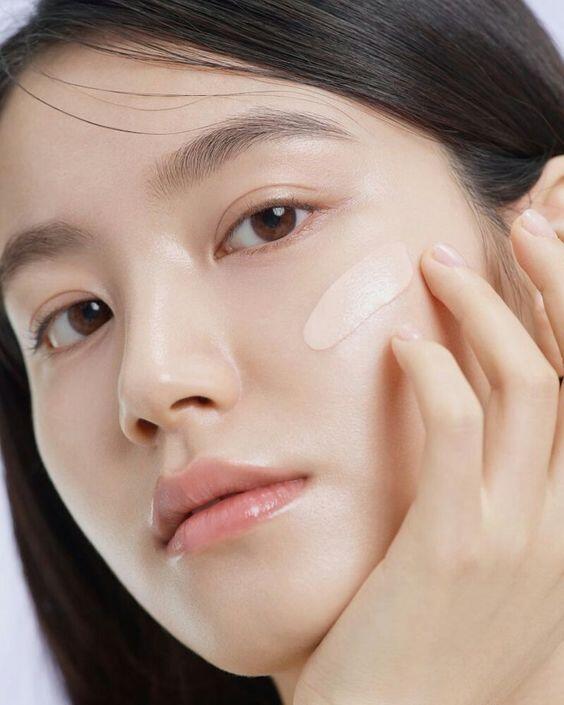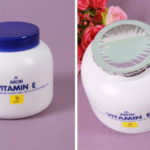It’s a common misconception that sunscreen is only necessary during the hot summer months. In reality, sunscreen is an essential skincare product that should be used all year round, even during the cold winter season. Choosing the right sunscreen for winter will help protect your skin while maintaining its moisture and vitality.

What’s the difference between summer and winter sunscreen?
If you want healthy, glowing skin, take a look at these reasons why you should consider switching up your sunscreen during the winter months:
1. UV rays are still potent even on cloudy days
According to the American Academy of Dermatology (AAD), UV rays are present even when it’s cloudy or during winter. Additionally, Dr. Elizabeth Hale, a dermatologist in New York, states that “UVA rays, which cause skin aging, can penetrate through clouds and glass, so your skin is still affected even when you’re indoors or sitting by a window.”

Especially if you’re in a snowy area, the UV rays reflected off the snow can increase the risk of skin damage, leading to sunburn or dark spots.
For these reasons, it’s crucial to use sunscreen during the winter. AAD experts recommend using a sunscreen with an SPF of 30 or higher and good UVA protection (PA++ or higher) to shield your skin from UV rays. If you’re not exposed to sunlight for more than 30 minutes a day during winter, you can opt for a sunscreen with an SPF of 15-30.
2. Skin needs more moisture during winter
Winter brings low humidity, and the cold temperatures and strong winds can cause skin dehydration, making it feel dry and flaky. According to dermatologists, the skin requires more moisturizing products during winter, and your sunscreen should also contain hydrating ingredients like glycerin, hyaluronic acid, or natural oils.

The fall and winter seasons tend to be drier, making it easier for skin to lose moisture.
Harper’s Bazaar also suggests choosing sunscreens containing ceramides or antioxidants to help the skin retain moisture and strengthen its natural protective barrier. These ingredients not only hydrate the skin but also protect it from the harsh winter environment.
Summer sunscreens usually have a lightweight, oil-free, or non-greasy formula to prevent oiliness and clogged pores due to sweat and high temperatures. In contrast, winter skin needs sunscreens that provide intense hydration.
3. The right sunscreen texture for winter
The texture of sunscreen is an important consideration when choosing a product for winter. Gel or water-based sunscreens, which are popular in summer due to their light and quick-absorbing properties, may not provide sufficient moisture during colder months. Dr. Joshua Zeichner, a dermatologist, recommends opting for lotion or cream-based sunscreens in winter. Cream-based sunscreens create a better protective barrier, preventing water loss from the skin caused by wind and cold temperatures.

With a thicker consistency, cream-based sunscreens provide long-lasting protection, keeping the skin soft and preventing dryness. This is crucial for safeguarding the skin from the drying effects of cold, harsh weather.
Summer sunscreens typically have a lightweight, gel, or water-based formula for easy absorption and a non-sticky feel. In contrast, winter sunscreens may come in cream or lotion form to provide better protection and hydration.
Do I need to switch my sunscreen?
In reality, the decision to switch sunscreens depends on your skin condition and environment. If you notice that your skin feels drier during winter or if your summer sunscreen doesn’t provide enough moisture, then you may consider making a change. However, if you’re using a broad-spectrum sunscreen with suitable moisturizing ingredients that can be used year-round, you may simply need to add extra moisturizing products to your winter skincare routine, such as a hydrating cream.

Some winter sunscreens may also include antioxidants like vitamins C and E to help combat aging and reinforce the skin’s protective barrier.
In summary, sunscreen is an indispensable ally in protecting your skin, not just in summer but all year round. Choosing seasonal sunscreens ensures comprehensive skincare, shielding your skin from UV rays’ negative effects while maintaining its natural moisture. As advised by Allure magazine, “Opt for products with an SPF of 30 or higher, hydrating ingredients, and a creamy texture to ensure your skin stays soft, smooth, and healthy.”
Regardless of the season, remember to apply a sufficient amount of sunscreen and reapply it every two hours when exposed to sunlight to ensure maximum protection. With these simple adjustments, you’ll be able to maintain youthful and radiant skin throughout the year.
The Ultimate Guide: Unveiling the Top 5 Vitamin E Night Creams for a Luminous, Even-Toned Complexion
Are you on the hunt for a top-notch Vitamin E moisturizer to add to your skincare arsenal? Well, you’re in luck! We’ve scoured the market and compiled a list of the top 5 Vitamin E creams and moisturizers that will transform your skin. Say goodbye to dull, uneven skin and hello to a radiant, glowing complexion!





































